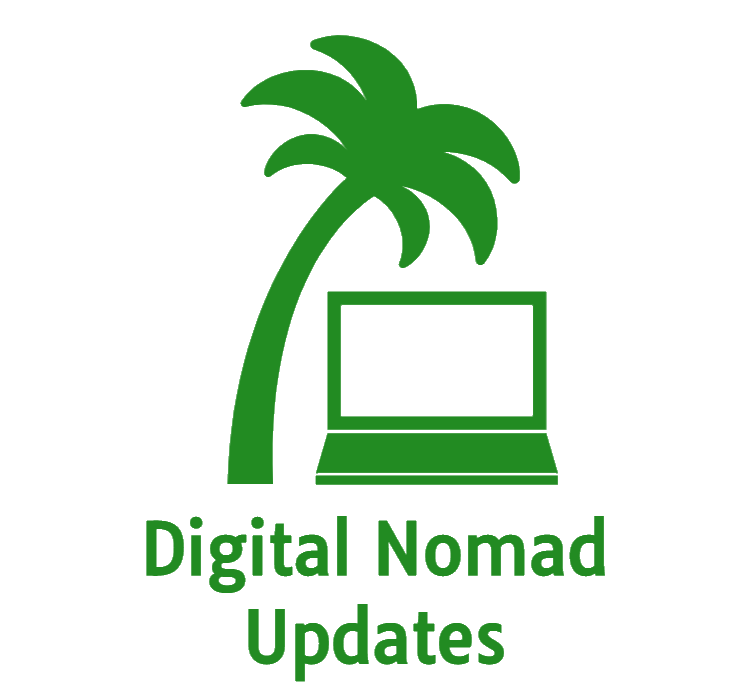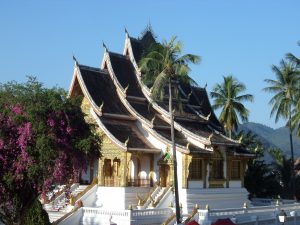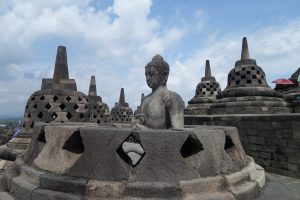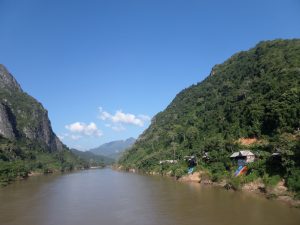
Uzbekistan is one of the highlights of destinations in Central Asia, especially if you are looking for historical sights, cultural heritage and welcoming people. It is still a country that receives few visitors, so if you want to enjoy the sights without the crowds of tourists, this is the time to go.
When to go and how long to stay

Uzbekistan can (and will) get scorching hot during the summer months of June, July and August. I had no other option but to travel there at the end of June and the beginning of July. Temperatures reached an incredible 47 degrees Celsius on some days, but it rarely went much below 40.
If you can’t tolerate this heat, try to plan your visit either for the spring or the autumn (winters may be too cold, on the other hand). For me, the heat was not a real problem, and I talked to quite a few fellow travellers, who were fine, too. It is a dry heat, so at least you don’t sweat all the time.
For a detailed itinerary, see this separate post.
Flights to Uzbekistan
There are Turkish Airlines flights not only to Tashkent, but recently, also to Samarkand, Bukhara and Urgench. From some countries, you can also use Uzbekistan Airways.
The Tashkent International Airport is a very small one, don’t expect a large crowd, and so, immigration procedures can also be expected to be quick and easy. Also prepare for not having any shopping options at the airport when you are leaving, and don’t plan to spend a long time before your flight departure, or bring some food and drinks with you – large bottle water is not confiscated. There is a small buffet which sells snacks, but it is at least 3-4 times more expensive than anywhere else in the country.
Your lighter, on the other hand, is confiscated, but there is no smoking area inside the airport anyway (there is one in front of the airport building, before check-in). Uzbekistani people seem to be heavy smokers though, at least that is what I could conclude after walking into the men’s toilet, and finding there people happily smoking – and making it impossible for others to breathe normally.

Getting from the Tashkent airport to the city centre
I hate to say this, and I hate when people say this about other cities, but in Tashkent, it is true: the only sensible option is to use a taxi. As in many other countries, you will be charged terribly inflated prices, but for westerners, it will still be OK.
As I said above, Tashkent airport is incredibly small. The arrival hall seemed deserted when I arrived, with only two young people behind one single counter. They sell SIM cards with inflated prices, and they can also call a taxi for you – for the same prices as you will get quoted outside by taxi drivers. This could be at least 100.000 sums (about 10 USD). The normal price, on the other hand, is not more than 20.000, but you will only be able to get it if you order your taxi through the local Uber, the Yandex Go app. If you can, install it before you arrive. You will still not be able to use it without internet connection though, unless you buy a local SIM card at the above mentioned kiosk.
There is an ATM in the arrival hall, and also a currency exchange, which may or not be open when you arrive.
Visa to Uzbekistan
With most passports (EU, UK, USA etc), you can now stay in Uzbekistan completely visa free for 30 days. As always, check the current regulations on an official website, since this may change.
It is important though to check your entry stamp in your passport – probably no problem there, but still… They check this stamp at hotels, and also if you want to buy a local SIM card (see below).
Registration in Uzbekistan
According to official sources, you are still required to do a registration in Uzbekistan as a foreigner. Yes, even as a tourist who is only spending a few days in the country. This registration should automatically be done by the hotel or guesthouse you are staying at, and at check-out, you will receive a registration slip (a quarter of an A4 size paper), which you must keep, because you are required to show them at passport control when you are leaving the country. You must be registered for every night spent in the country, but some sources say you may leave out a few days if you have registration for the rest. If you spend the night on a train, keep the train ticket.

At least, this is the expected, official course of events, which is not always what you will experience in real life.
First of all, almost all of my reg cards contain mistakes. Some of them misspelled my name, some of them contain a stamp, others do not. Other travellers have complained online that their registration slips didn’t contain a QR code. Some complained that they didn’t receive their registration slips from the hotel or guesthouse at all, or that what they were given did not look an official registration slip at all.
Many foreigners start to worry at this point and wonder what they will do at passport control, when they are leaving, or how much fine they will be required to pay for the missing registration slips.
There is no reason to worry. In my case, the immigration officers were not interested in my registration slips at all. I handed them over to the officer together with my passport, and he didn’t even look at them. Other travellers report the same or something similar. However, to be to on the safe side, I suggest that you should still collect these registration slips and keep them, you never know what type of immigration officer you will meet at the airport…
Language
Uzbekistani people speak Uzbek, a Turkic language, which may be similar to Turkish, but they are not mutually understandable. Most people will also speak Tajik, a Persian language, and practically everyone speaks Russian too, which is the lingua franca in the region: wherever you go in the “stans”, or in most of the post-soviet countries for that matter, Russian will be spoken everywhere.
English, on the other hand, is not widely understood – to put it mildly. You may be lucky to find an English speaking waiter in some of the larger restaurants, some hotel staff may also speak some English, but that’s about it. Generally, you shouldn’t expect people to speak English at all, whether it is the information office staff, a policeman or some airport staff.
If you speak Russian (or Uzbek or Tajik), you will be fine – and you will have a great time with local people! I would have missed so many of my greatest conversations if I didn’t speak Russian! Local people are interested in foreigners, they come up to you and start a conversation whenever they have a chance to do so.


Talking about English, I had some wonderful experiences in Bukhara, when local people approached me in the streets and asked me if I was available for a few minutes because they wanted to practice their English. On one occasion, it was a school group with their English teacher, and the other was a mother with her son and little daughter – and she wanted her son to practice his English (it seemed to be a school task/project, they also recorded the conversation). In both cases, they were beginner learners of English, and they asked me about myself, whether I liked Uzbekistan etc. Should you happen to be asked to have an English language conversation, be prepared to be helpful and speak as clearly as you can.


Money and costs
Uzbekistan is a very affordable country for most visitors. I never paid more than 33 USD for a night in a hotel or a guesthouse – and all of them were comfortable with air conditioning and breakfast included in the price. You can of course find more expensive luxury options too, if that is what you want, but those options are limited. Most cities offer more of the guesthouse type of accommodation, which I think is always better than large hotels. One advantage is that you have a better chance of meeting other travellers and exchange some tips and experiences. The only large hotel I stayed at was Shodlik Palace in Tashkent, which was a good hotel, but I never had the chance to talk to other guests.
Food is also inexpensive, but perhaps a little pricier than for example in South East Asia. Expect to pay about 10-15 USD for lunch or a very simple dinner in a decent (but not luxury) restaurant. If you only want to grab a plate of food at a simple place, you may expect to pay about 5-6 USD.

In Uzbekistan, you drink tea. A coffee admirer like me, on the other hand, will find it difficult to have really good coffee. Espresso, which is what I usually drink, is available just about everywhere in Uzbekistan, but it is so incredibly awful, that you will be better off ordering a черный кофе, i.e. black coffee, which costs what you would expect (5-6000 sums, about half a dollar), rather than the undrinkable espresso for 20-30.000 sums. An ice cream will cost about 5-10.000 sums, and a 1 litre bottle of water in a supermarket is 3000. For smokers: cigarettes cost about 13-15.000 sums, so very cheap compared to European countries. Uzbekistan is a Muslim majority country, but alcohol is still available. I never looked at the prices, I only had a beer at a restaurant once, and it was cheap.
Local transport is cheap everywhere, unless you are trying to take a taxi from the airport or the railway station to the city centre, in which case you can expect to be overcharged by 200-500% or more, if you are not good at hard haggling. For a taxi ride that should cost about 20.000, I was quoted 90.000 in Bukhara, which I could only haggle down to 40.000 (my Yandex app was not working). If you want to travel by taxi, I strongly recommend that you should download the Yandex app, the local equivalent of Uber/Grab etc. You can order the taxi and pay by either cash or card.
Entrance fees are reasonable, although they may add up quickly in a city like Samarkand or Bukhara, but then, the sights are one of the main reasons you have come here. The entrance fee to the Registan in Samarkand is 50.000 sums (about 5 USD). The entrance fee to the Itchan Kala in Khiva is 120.000 sums, valid for 2 days and almost all the sights inside.


Local currency and changing money
The local currency is the Uzbek sum, sometimes called som (UZS). There are coins, which are rarely used, and the largest banknote is the latest 200.000 sum banknote, which I have never seen in real life – the largest banknote I was using was the 100.000 sum note.
There are ATMs everywhere you go as a tourist, and I know lots of travellers have used them with no problems. But because my bank charges exorbitant fees for ATM use (more than 9 euros), I try to avoid using the ATM whenever I can. Instead, I brought USD cash with me, and changed it into sums. But it was rather difficult to do!
When I arrived at Tashkent airport (which looks and feels like a small bus station in a provincial small town), I was surprised to see that at the arrivals hall, there was one single service desk, where you could order an overpriced taxi, and buy a local SIM card with similar conditions. And yes, there was a money changer too, but there was no one there. An other staff member said the money changer woman is gone, but she will return soon. After waiting 20 or so minutes, a young Tajik guy joined me, and we were waiting together. I was surprised that no other passengers wanted to change money, but maybe everyone else was returning home??? Anyway, the money changer did return after half an hour or so, so I could change 50 dollars into sums.
This 50 USD was enough for me for the two days in Tashkent (I paid for my hotel room and the train ticket with my bank card), but in Samarkand, my next stop, it was impossible to find a money changer. I ended up changing money at my guesthouse, where I also paid for accommodation with USD cash. The 200 dollars that I changed proved to be too much for the entire two weeks – yes, I used my bank card whenever I could -, and I ended up with quite a lot of local cash with me when I was leaving the country. No problem, I thought, I can change it back to USD at the Tashkent airport. But this also proved to be impossible. When I wanted to change the sums into USD, they wanted to see the receipt of changing the USD to sums, or the ATM receipt if I withdrew the cash from an ATM. Since I didn’t keep the receipt from the money changer, I had no option but to leave the country with a lot of unusable cash – no, you can’t change or use Uzbek sums anywhere else int he world. (A “nice” twist: when I returned home, I did find the money changing receipt at the bottom of my backpack!!!)
So make sure you keep all your ATM or money changer receipts in case you are left with a larger amount of local cash at the end of your trip, and you want to change it back to USD/EUR.

How to buy an Uzbekistani SIM card with data?
If you are only staying in the country for a week or two, all Uzbekistani service providers will do just fine, even if there are minor differences in prices and packages that you can buy.
You will of course need your passport to buy one, and you can only buy the SIM card in the service providers’ offices (no third party sellers, except perhaps the airport in Tashkent). Just do a search on Google Maps and find the nearest office.
Since I found an Uztelecom office near my hotel, I bought a SIM card from them. I chose the one for 100.000 sums (about 10 USD), which included 35 GB of data and lots and lots of free calls and SMSs, because I was afraid I would have to use this mobile data if the hotel wifi was not working. I ended up using only a fraction of this, since all my hotels and guesthouses had excellent WIFI, and I didn’t need to call or send texts either. The 8 GB package would have been just fine for only 4 USD, it seems.
As I mentioned above, the Tashkent airport has a shop where they are selling SIM cards, but they only accept local cash.

Local transport in Uzbekistan
Taxis in Uzbekistan are cheap for most visitors, especially for westerners. The taxi from the Tashkent airport to the city centre cost us 70k sums (7USD), and the taxi driver had the cheeks to complain all the way that he felt cheated. Now the same taxi ride back, when I was leaving the country, cost 23k sums through the Yandex app! Taxi, if you use the app, will not cost you more than 25.000 anywhere in any city, but the Yandex app only works in Tashkent, Samarkand and Bukhara – but then these are the main destinations for most travellers.
The Yandex app may prove to be very tricky to install, I didn’t get the text message that is necessary for registration, so I was forced to open a Yandex account on the web, and use it to register the app on my phone.
In Uzbekistan, any car may serve as a taxi (I don’t suppose it is completely legal, but never mind). A lot of local people use this service all the time: you just need to stand on the roadside, holding your hands slightly away from you, or simply trying to show that you are waiting for a taxi service. Sooner or later, some of the cars will stop next to you. You just tell them your destination, and ask them about the price. If both of you are satisfied with the offer, jump in and off you go. You may want to try this just for the fun of it.
If you are travelling between cities, the train will be your best bet. Uzbekistan has some new, modern trains, which are very comfortable, extremely fast (over 200 km/h), and they even serve some snacks and refreshments, included in the price. For the journey from Tashkent to Samarkand, I paid 100.000 sums. Tickets, however, get sold out very quickly, so try to buy them as soon as you can. I bought mine more than a week before. The Uzbekistani Railways has an English language website, and you can use your Visa or Mastercard to purchase tickets. You get the ticket in a PDF, and you only have to show this when you board the train (and/or when you enter the railway station).


You can also use the marshrutkas, which are minibuses running between settlements. They tend to be less comfortable than any other forms of transport though, but they are inexpensive, and not too slow either, so if you want to save some money, they could be a good option. Ask your hotel about the marshrutka stands in the given city. Marshrutkas usually have the name of the destination displayed on the front.
Then there is the local airlines, Uzbekistani Airways, which has several routes in the country. I flew from Urgench (the city nearest to Khiva) to Tashkent for 75 dollars. This was extremely expensive, but I was forced to buy the ticket less than a day before departure, otherwise it should cost 40 USD at most.




